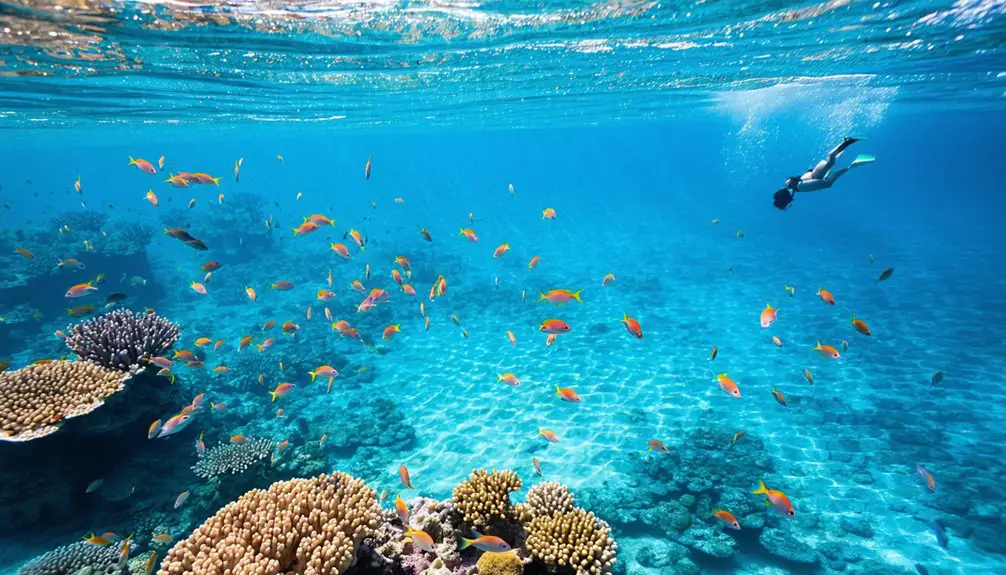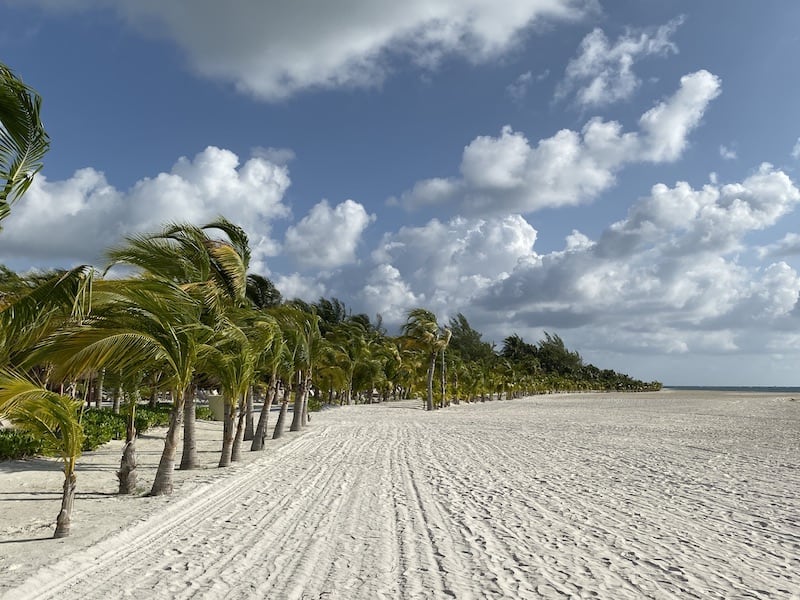As Tulum progresses toward its ambitious 2025 environmental targets, the coastal destination has initiated a thorough sustainability strategy focused on obtaining White Flag certifications for Playas Pescadores, Maya, and Santa Fe—a multifaceted endeavor that represents the municipality's commitment to marine ecosystem preservation.
The certification process necessitates extensive physical remediation of plastic waste and marine debris, coupled with infrastructural enhancements including sanitation facilities, potable water access points, and elevated safety installations to meet international standards for beach quality management.
Tulum's White Flag journey demands intensive debris removal and facility upgrades to satisfy rigorous international beach management criteria.
You'll find Tulum's environmental initiatives extend beyond mere certification goals, with 80% of the region's electrical consumption now derived from renewable energy sources—a metric that positions the destination at the forefront of Mexico's sustainable tourism paradigm.
The municipality has concurrently deployed artificial reef structures to bolster marine biodiversity while enhancing visitor experiences through improved snorkeling conditions, demonstrating the symbiotic relationship between conservation efforts and tourism appeal.
The White Flag certification program functions in tandem with Tulum's pursuit of Platinum certifications for five beaches by 2025, creating an extensive environmental management framework that addresses both visible contamination and underlying ecological conditions including water quality parameters and ecosystem integrity. Recent water quality tests showed a significant 30% reduction in bacterial levels as of April 2024. The local agency Zofemat is spearheading these ambitious certification efforts to establish Tulum as a premier sustainable tourism destination.
Tourism analysts project these dual certification pathways will generate substantial competitive advantages in the eco-tourism market segment, where consumer preference increasingly favors environmentally responsible destinations.
Infrastructure modernization supports these certification objectives through upgraded wastewater treatment technologies that minimize oceanic contamination vectors.
Community engagement remains integral to sustainability maintenance, with local stakeholders participating in conservation workshops and ongoing beach maintenance protocols.
The municipality has also invested in human capital development, with over 150 lifeguards receiving advanced safety training to enhance visitor security.
Tulum's certification strategy represents a calculated balance between economic development and environmental stewardship, recognizing that long-term tourism viability depends on preserving the natural resources that fundamentally constitute the destination's appeal.
The White Flag initiative serves as the cornerstone of this integrated approach to sustainable coastal management.





